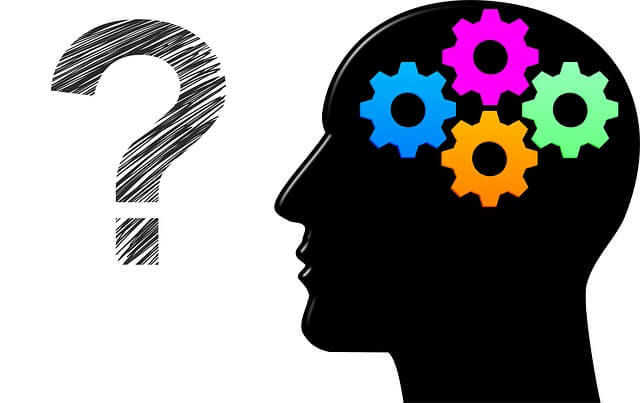Cannabinoids are a class of over 60 chemical compounds in cannabis plant, including cannabinol (CBD) and tetrahydrocannabinol (THC) as the majorly known examples of cannabis chemical compound. Cannabinoids are agonists that bind the cell receptors in the body. Cannabinoid receptors are preponderant in the central nervous system and they also occur in almost every vital parts and organs of the body including the digestive tract and the reproductive organs. Cannabinoids interact with these cell receptors in the body system and elicit their effectiveness. All these cannabinoid cell receptors in their various parts and organs of the body make up the endocannabinoid system (ECS) which is a vast network of receptors with many functions and hence, it is usually described by many as the greatest system of neurotransmitters in the body.
CBD and THC are the majorly known cannabinoids out of the over 60 chemical compounds in the cannabis plant. THC, the psychoactive compound in cannabis that evokes the feeling of “highness” and CBD, the medicinal component of cannabis, both THC and CBD have a molecular shape identical to the naturally-produced endocannabinoids in our bodies. As a result, they can effectively access our ECS. This is why THC possesses such great psychoactive ability in humans. This also makes it possible to strengthen the ECS using medicinal cannabinoids such as CBD, which is available for sale in various forms, such as CBD oil and other related therapeutic CBD products.
Effects of CBD vs THC on endocannabinoid system (ECS)
These cannabinoids obtained from cannabis react in like manner to our natural compounds, affecting homeostasis by communicating with endocannabinoid receptors and helping with system regulation. CBD specifically act as controllers to switch on the regulative ECS, it reacts to boosts the endocannabinoid action as it triggers the ECS receptors to produce their cannabinoids. This boosts the overall effect on the body, maintaining a state of equilibrium. The endocannabinoid system is in charge of controlling all kinds of bodily functions such as reproduction, immune metabolism, pain and mood functions. When plant cannabinoids such as CBD are used to supplement a damaged endocannabinoid system, they restore the ideal functioning of the system. This results in a significant improvement in any health-related condition. Studies have proven that cannabinoids can target impaired cells, ignoring normal cells.
A vast majority of reports have it that CBD and THC influences the signaling role of the ECS positively and negatively in the following ways:
- Metabolism and energy balance: Studies in the past two decades have proven CBD to be a lipid-signaling chemical greatly involved in energy balance regulation. This happens as CBD is ingested into the body to compliment the ECS, and thus regulates every component associated with the exploration, intake, breakdown, and storage of calories. However THC has been proven by various studies to poorly influence the ECS and manipulate the body metabolism, leaving the user feeling loopy.
- Analgesics: CBD has a specific pain relieving property called palmitoylethanolamide, the most examined endocannabinoid in pain research, has been declared safe and effective regarding its analgesic effects to multiple pain indications. Contrarily to the use of THC, it can also contribute to alleviating short term pain, but causing damages to the ECS on the long run after prolong use.

- Memory and learning: The CBD is a crucial player in controlling the memory and learning processes. This is mainly attributed to its capacity to control neural transmission, on the other hand THC ingestion to the ECS could lead to impaired learning processes.

- Multiple sclerosis and other neurodegenerative ailments: New avenues for study and research have been opened for the possible treatments of neurodegenerative ailments including multiple sclerosis. This is due to the existence of positive communication between the ECS and CBD, alongside the neuronal stimulation. While some medical publications has been recommending the ban of THC to alleviate drug abusive among the youth.
- General digestive function: Numerous benefits of synthetic and herbal cannabinoids such as CBD on gut inflammation and flexibility have been shown, implying massive feasibility in their use for treating gastrointestinal disorders. Their beneficial effects arise from the ECS, a collaborative molecular network for the regulation of body metabolism. In the gastrointestinal tract, the ECS reacts swiftly to homeostatic stimuli by de novo synthesis of its elements, maintaining homeostasis. This proffers many likely targets for pharmacological intervention. Non-psychoactive cannabinoids such as CBD are of huge therapeutic interest as opposed to the restriction campaign of psychoactive compounds such as THC, that indirectly target cannabinoid receptors even though they possess cannabinoid-like properties. CBD related products can hinder endocannabinoid deterioration and hence increase their levels of turning into favorable substitutes for therapeutic mechanisms that alter the ECS.
Therapeutical benefits
With close consideration of the many great and almost unbelievable therapeutic benefits non-psychoactive cannabinoids such as CBD have to offer, they have surely come to stay in medicine. For decades, outdated laws have ignorantly banned cannabis intake due to the assumption that THC is the main chemical compound in cannabis plant, which is scientifically not true. Considering CBD as the medicinal compound of cannabis plant, CBD has potential therapeutic value that it may well become one of the most important medicines for many diseases. The polypharmacological actions of CBD can be exemplified by the effect it has on multiple pathways in the body. Before an excited rush to explore this new found world, it is important to note that the pharmacological effects of CBD vary and depend on its concentration in the each supplements. This information is going to be of immense importance because, it will serve as a guide to help you benefit from different kinds of CBD products out there. Getting a reliable brand from a reliable source is therefore of utmost importance, if you want to enjoy the great therapeutic benefits CBD has to offer. Many patients have found tremendous relief from many ailments due to the effect of cannabinoids. Here are a few common reasons patients use CBD:
- Anxiety Disorders: Anxiety disorders can take many forms, ranging from social anxiety to post-traumatic stress disorder (PTSD). People who suffer from different types of anxiety live severely impaired lives. CBD has a profound effect in restoring normalcy to the lives of people who suffer from anxiety. Research has shown that the compound cannabidiol (CBD), is responsible for the anxiolytic effects of cannabis. In numerous scientific studies, it has been found and reported that CBD decreases anxious feelings in test subjects. It has also been found from intense research, that CBD is a promising treatment for numerous forms of anxiety, including obsessive-compulsive disorder (OCD), panic disorder, generalized anxiety disorder, PTSD, and social anxiety disorder. There are also many anecdotal reports besides these studies that support the benefits of CBD for treating anxiety.

- Depression: Depression is a common mental disorder and affects people of all ages, race, and sex, with more than 300 million people suffering from this mental condition worldwide. Depression can cause major changes to mood, thoughts, and behavior. Many studies have supported the growing evidence that CBD can help treat depression. These studies have found that CBD exerts its antidepressant effect by acting on serotonin pathways in the brain. CBD could be especially beneficial for reducing anhedonia, a symptom of depression that makes people unable to feel joy or happiness. Studies have found that a reduction in the endocannabinoids produced by the endocannabinoid system may be involved in depression. CBD can however reverse the symptoms of depression and improve mood by activating the endocannabinoid system which will consequently increase the levels of naturally-occurring cannabinoids, such as anandamide.
- Nausea: Nausea is an uncomfortable sensation and is usually a side effect of many drugs including chemotherapy, or it could be due to other factors such as exposure to bacteria and viruses and is a common sensation in early pregnancy. Although the study of the effect of CBD against nausea is relatively more recent, it has shown a lot of promise as an antinauseant. CBD may prove to be particularly helpful in treating nausea in patients who are not getting relief from the commonly prescribed anti-nausea drugs.
- Epilepsy: One of the well-known effects of CBD is its effect on certain forms of epilepsy, including Dravet syndrome. Research with human models has shown that CBD has pronounced anticonvulsant effects in humans and is, therefore, a great option for the management of epilepsy.
- Diabetes: Diabetes is a chronic disease that can with time cause severe complications such as cardiovascular disease, kidney disease, stroke, and damage to the eyes. As this disease progresses, there tends to be inflammation which progressively gets worse, causing chronic pain which is often times discomforting. As strongly believed by researchers, CBD may offer protection against complications in diabetes such as diabetic neuropathy by boosting the immune systems and decreasing inflammation.

- Cancer: It is of great interest to know that not only can cannabinoids reduce nausea and vomiting from chemotherapy used in cancer treatment, cannabinoids such as CBD may actually fight cancer itself. Current research strongly suggests that non-psychoactive cannabinoids such as CBD can prevent the metastasis of cancer cells and trigger cell death in these cancerous cells. Cancer cells need the nutrients that the blood supply to be able to grow. CBD has been found to slow the formation of new blood vessels in tumors, and may therefore also slow the growth of tumors. Overall, the research available on CBD and cancer are not extensive, but early results are promising.
The therapeutic benefits of CBD for other medical conditions such as Lupus, Motor disorders, Nicotine addiction, Parkinson disease, Osteoporosis, and various pediatric conditions have been shown.

